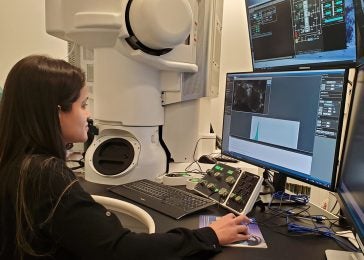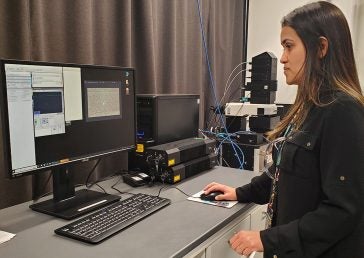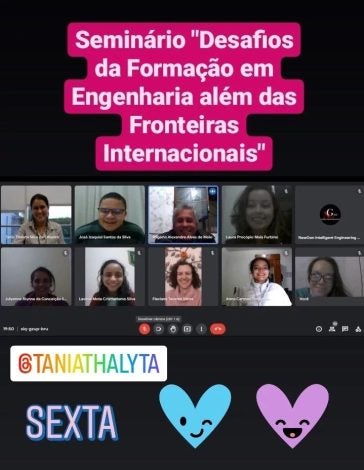By Neil Nachbar
When Tania Silva de Oliveira came to the University of Rhode Island for an exchange program from Brazil as an undergraduate in 2013, she didn’t know that she would fall in love with the University.
She certainly wouldn’t have predicted that she would be on the verge of completing a doctorate in chemical engineering at URI nine years later.

“I was amazed with the campus, the laboratories, the diversity of the people, and how the professors teach at URI,” said Silva de Oliveira. “At URI, I found a home away from home.”
Silva de Oliveira studied at URI for 18 months thanks to a Science Without Borders scholarship she received from the Brazilian government. Because Silva de Oliveira didn’t speak English, she took English classes through URI’s Associates in Cultural Exchange Language Institute. Once she became proficient in English, she enrolled in chemical engineering courses.
“Tania impressed me as an undergraduate exchange student in my Fluid Mechanics class in 2013,” said Professor Arijit Bose. “Anyone who leaves their native country at that age, arrives in a new cultural environment, settles in, and does well in the classroom, already shows grit and motivation.”

Silva de Oliveira earned bachelor’s degrees from Brazil’s Federal University of Vales do Jequitinhonha e Mucuri in chemical engineering in 2018, and science and technology in 2016. She then decided to reconnect with Bose and return to URI for graduate school.
“Dr. Bose played a crucial role when I was applying to graduate school,” said Silva de Oliveira. “He provided all the support I needed throughout the process.”
At URI, Silva de Oliveira has developed as a person, a student and a researcher.
“In the time she’s been working with me, Tania has developed her sense of self-confidence,” said Bose, who is her doctoral advisor. “She’s not afraid to tackle difficult projects, she’s mentored several students, and she’s one of the most diligent and productive graduate students I’ve ever had. She does all of her work with great enthusiasm and happiness.”
Silva de Oliveira’s proudest moment as a graduate student came when an article she co-authored was published in a professional journal. The article, her first peer-reviewed academic piece, analyzed how microplastics and nanoplastics interact with cyanobacteria in marine and freshwater environments. It was published in the American Chemical Society journal Langmuir in 2020.
After four years of hard work, Silva de Oliveira will earn her doctorate in chemical engineering at the end of the 2022 fall semester. Once she graduates, she aspires to work in the biotechnology industry in the United States. In the meantime, she hopes other students from Brazil will follow in her footsteps.

In the spring of 2022, Silva de Oliveira was asked by a former professor in Brazil to give a virtual presentation on the challenges of studying abroad, the admission process, and the difference and similarities between graduate school in the United States and Brazil.
“The students don’t have a lot of information about attending graduate school abroad or how to become a research assistant or teaching assistant,” said Silva de Oliveira. “The process can be challenging, especially if you don’t have the means to learn a second language throughout your school life.”
The video presentation was organized by Professor Jose Izaquiel through a program that introduces undergraduate students to engineers who work in various fields, to help them achieve their career goals.
Perhaps years from now, some of the students who listened to Silva de Oliveira’s presentation will follow her path to URI. That’s something Bose would embrace.
“I hope we get more students like Tania in the years to come,” said Bose.
